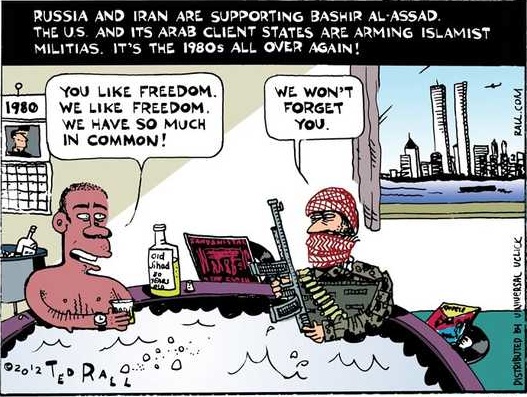With the horrific Paris attacks refocusing the global spotlight on the scourge of international terrorism, we should not forget the factors that continue to aid the rise of jihadi forces. The international fight against transnational Islamic terrorism can never succeed as long as short-term geostrategic interests prompt Western powers to form alliances of convenience that strengthen fundamentalist forces extolling violence as a sanctified tool of religion.
Islamic terrorism poses an existential threat to liberal, pluralistic states everywhere, not just in the West. So, the interventionist policies of some powers that unwittingly bolster Islamist forces threaten not just their internal security but also that of other democracies with sizable Muslim populations.
Make no mistake: The war on terror cannot be credibly fought with treacherous allies, such as jihadi rebels and fundamentalism-exporting sheikhdoms. Indeed, the pursuit of near-term geostrategic goals at the cost of long-term interests has created an energized international jihadi threat and fostered greater transnational terrorism. The focus on securing short-term gains is helping to inflict long-term pain on the international community.


















With your current subscription plan you can comment on stories. However, before writing your first comment, please create a display name in the Profile section of your subscriber account page.